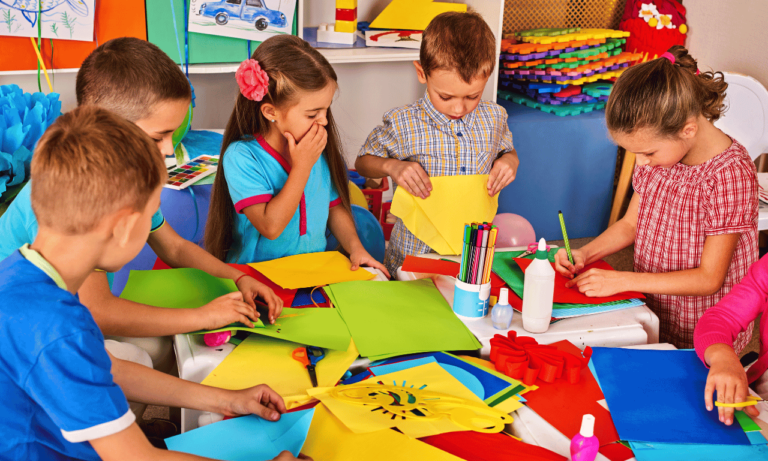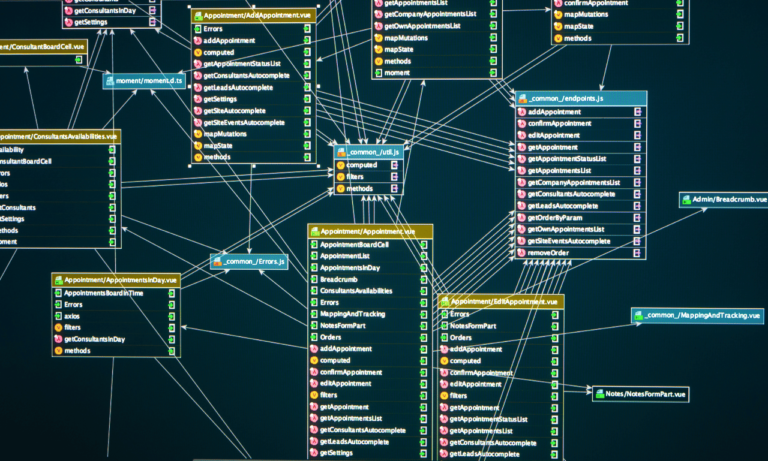Phone:
(+65)8319-0742
The journey towards academic success is paved with the transformative process of Conceptual Support in Learning. This educational paradigm stretches beyond the mere retention of facts, encouraging learners to fuse learning concepts with cognitive frameworks that can be applied innovatively in diverse scenarios. This facilitative approach champions enduring cognitive development, ultimately scaffolding students toward greater levels of success both academically and in real-world applications. At the heart of Conceptual Support in Learning lies the belief that understanding is a multifaceted endeavor. It emphasizes the importance of active engagement, where students are not passive recipients of information but instead become co-creators of knowledge. This engagement can take many forms—through collaborative projects, discussions, and hands-on experiences that allow learners to explore and experiment with concepts in a meaningful way.
Moreover, the integration of technology in this paradigm enhances the learning experience, providing tools that enable personalized learning paths. Digital platforms and resources can cater to individual learning styles, allowing students to delve deeper into subjects that intrigue them and to master concepts at their own pace. This adaptability fosters a sense of ownership over their education, motivating learners to seek out challenges and embrace curiosity.
Educators play a crucial role in this transformative process. By adopting a facilitator’s mindset, they can guide students in making connections between different concepts, encouraging them to question assumptions and explore diverse perspectives. This mentorship not only helps in building critical thinking skills but also nurtures resilience, as students learn to navigate setbacks and view challenges as opportunities for growth.
Furthermore, fostering a supportive learning environment is essential. A culture that celebrates inquiry, collaboration, and creativity empowers students to express their ideas freely without the fear of judgment. This psychological safety is vital for taking intellectual risks and cultivating a growth mindset—a belief that intelligence and abilities can be developed through dedication and hard work.
As students progress, the skills acquired through Conceptual Support in Learning extend far beyond the classroom. They become adept problem solvers, capable of analyzing complex situations and devising innovative solutions in various contexts. Whether in the workplace, community, or global arena, these individuals are prepared to tackle real-world challenges with confidence and creativity.
In conclusion, the journey toward academic success is not merely about grades or standardized tests; it is about nurturing a lifelong love for learning. By embracing the principles of Conceptual Support in Learning, we can cultivate a generation of thinkers, creators, and leaders who are equipped not only with knowledge but also with the ability to apply that knowledge in meaningful ways. This holistic approach to education is essential for preparing students to thrive in an ever-evolving world, making them not just learners, but also active contributors to society.
Instructive methodologies now ardently echo the sentiment that effective teaching strategies serve not just to educate but to empower. Students are urged to venture past simple recollection, engendering analytic and deductive skills that thrive on conceptual understanding. Through detailed, alternate exposures to raw data and higher-level abstracts, the educational landscape is refashioned to impart knowledge poised for transference to new and evolving experiences.
Key Takeaways
- Grasping the scope of Conceptual Support in Learning for sustainable knowledge.
- Implementing learning concepts to foster real-world problem-solving skills.
- Promoting cognitive development through concept-focused educational activities.
- Measuring the impact of effective teaching strategies on academic performance.
- Enabling students to reach higher academic success through conceptual mastery.
Understanding the Fundamentals of Conceptual Support in Learning
The journey toward knowledge acquisition and effective educational psychology methodologies is rooted in Conceptual Support in Learning. This essential educational concept paves the way for students to build strong, flexible foundations that go beyond rote memorization to deeper understanding and application of learning concepts. As we delve into the nuances of this approach, we find that it is the bridge connecting abstract ideas to tangible understanding, fostering a more enlightened and informed world.
Defining Conceptual Learning and Its Importance
At the heart of Conceptual Support in Learning lies conceptual learning. Unlike traditional learning methods that focus on the absorption and recall of isolated facts, conceptual learning encourages students to integrate new information into a broader, more cohesive framework. This approach is paramount because it equips learners with the ability to intuitively apply their knowledge in varied and unfamiliar situations, leading to more meaningful educational psychology outcomes and lifelong learning.
Contrast Between Conceptual and Rote Learning Methods
When we contrast learning concepts with rote methods, the difference is clear. Rote learning confines students to memorization without understanding the context or relevance of the information, impeding true knowledge acquisition. In contrast, conceptual learning fosters an environment where students can link new ideas to existing knowledge, constructing and reconstructing understanding in a way that promotes retention and intellectual growth.
The Role of Educators in Nurturing Conceptual Understanding
Educators are the linchpins in the process of knowledge acquisition, guiding learners as they build and refine their conceptual frameworks. Through strategic questioning, facilitating discussions, and nurturing an environment ripe for inquiry, educators help students cultivate a robust understanding of learning concepts. In doing so, they move beyond surface-level teaching and become architects of deep, enduring understanding.
- Recognition of individual students’ preconceptions
- Employing strategies that promote critical thinking and curiosity
- Creating opportunities for concept application across contexts
The table below articulates the core values and practices that distinguish conventional learning methodologies from those of Conceptual Support in Learning: a portent of true educational psychology innovation.
| Feature | Rote Learning | Conceptual Learning |
|---|---|---|
| Purpose of Learning | Memorization without context | Understanding and applying concepts |
| Role of Educator | Disseminator of facts | Facilitator of connections |
| Engagement with Content | Passive reception | Active exploration |
| Assessment Focus | Recall of information | Application of concepts |
This educational paradigm shift is not simply about altering teaching techniques; it is about reimagining the learning landscape. As we continue to explore and implement Conceptual Support in Learning, we open new pathways in both educational psychology and knowledge acquisition, laying the groundwork for a generation of adept, adaptable minds ready to face the complexities of an ever-evolving world.
Strategies for Developing Conceptual Understanding in Students

Innovative teaching strategies are essential to advance student learning through the development of conceptual understanding, which represents one of the critical pillars of contemporary education. Facilitators of knowledge can increment educational support by incorporating a variety of educational resources designed to enable students to interlink and categorize key concepts, setting the stage for effective knowledge transfer. The implementation of diverse activities provides ample opportunity for students to grapple with and internalize complex ideas, positioning them for success in their ongoing educational journey.
For instance, using T-charts to organize and compare geometric shapes not only cements the students’ ability to identify these entities but also promotes analytical thinking and deeper cognitive engagement. Similarly, concept mapping serves as a tool to weave together thematic relationships, such as those found within the context of environmental sustainability, fostering a greater appreciation for the interconnectedness of global challenges.
Here is an activity table illustrating methods that encourage learners to deepen their conceptual comprehension:
| Activity | Purpose | Expected Outcome |
|---|---|---|
| Forming T-Charts | Categorization of polygons and properties | Enhanced visual discrimination and terminology proficiency |
| Creating Concept Maps | Exploring sustainability connections | Integrated understanding of environmental, economic, and social factors |
| Designing Posters for Social Causes | Real-world application of societal concepts | Ability to synthesize information and apply it creatively to advocate for change |
| Comparing Student Ideas with Scientific Concepts | Challenging and refining preconceptions | Advanced critical thinking and receptive approach to empirical evidence |
True educational transformation occurs when students are invited to participate in real-world applications of their knowledge. Crafting posters for social issues represents an outstanding method for merging academic insights with community engagement. By actively partaking in such ventures, students become not only learners but also change makers, using their skills to influence the world around them.
Lastly, it is imperative to create scenarios that propel students out of their cognitive comfort zones. By juxtaposing learner-generated ideas with universally recognized scientific concepts, educators can elicit a deeper, more nuanced comprehension of the subject matter. Such intellectually provocative environments necessitate an advanced level of educational support, laying the foundation for students to achieve impressive academic and personal growth.
Conceptual Support in Learning: Teaching for Conceptual Change

When it comes to enriching the educational experience, fostering an environment where cognitive development and knowledge acquisition are at the forefront is key to promoting conceptual change. By thoughtfully integrating educational psychology practices and leveraging diverse educational resources, teachers can guide students through the transformative process of altering their existing understandings to grasp new scientific conceptions effectively.
Addressing Preconceptions and Misconceptions in Learning
Learning is an evolutionary process, often necessitating the reevaluation of initial misconceptions. Educators can shed light on an array of perspectives, encouraging learners to reassess their preconceived notions. This constructive method not only nurtures cognitive growth but also sets the stage for profound conceptual understanding.
Creating Learning Environments That Promote Conceptual Thinking
An environment ripe for discovery serves as the bedrock upon which students build a robust foundation of knowledge. Classrooms should buzz with inquiry where curiosity is sparked, and engagement with novel educational content becomes the norm. Such enriched atmospheres envelop students in the warmth of wonder, furthering their cognitive journey.
Using Generative Learning Models to Foster Understanding
Embracing the Generative Learning Model, educators impart a sense of empowerment to their students. This approach tailors the learning process to assimilate and accommodate new information within each unique cognitive framework. With activities designed to invoke reflection prior to instruction, learners are encouraged to interact with new ideas, thus strengthening the bonds of comprehension and application.
Interdisciplinary teaching strategies, such as collaborative projects and problem-solving exercises, enable students to practice applying their newfound knowledge in familiar and novel contexts alike. Ultimately, these approaches aim to bring about a harmonious union between student intellect and the scientific understanding essential for holistic education.
Case Studies of Conceptual Learning in Action

Anchoring academic strategies in real-life application considerably impacts educational support and student learning. This integration is vividly illustrated through case studies which allow educators to assess hands-on the amplification of academic success and cognitive development. The practical use of these cases reveals how conceptual learning can lead to a more profound understanding, equipping students with versatile skills for their future endeavors.
Real-World Applications of Teaching Strategies for Conceptual Growth
Educational methodologies that emphasize conceptual growth ensure that student learning is not only about knowledge acquisition but also about the applicability in various situations. Observing students as they deploy these strategies in case studies reflecting real-world scenarios, such as environmental policy formulation or ethical business practices, showcases how classroom lessons transform into actionable insights.
Analyzing the Impact on Academic Success and Cognitive Development
The potency of educational support is quantifiable when student learning outcomes are measured in terms of academic success and cognitive development. These outcomes are not just grades on a paper but encompass the analytical skills, creative problem-solving, and adaptabilityâskills indicative of true conceptual understanding and necessary for life-long learning.
| Conceptual Learning Strategy | Applied Case Study | Outcome on Student Learning |
|---|---|---|
| Collaborative Learning | Community-based projects | Enhanced teamwork and problem-solving abilities |
| Problem-Based Learning | Real estate development simulation | Increased capability to approach complex problems |
| Critical Thinking Exercises | Debates on historical decisions | Improved analytical skills and historical understanding |
These case studies affirm that when educational support is oriented towards not just the present academic success but also towards future cognitive development, it lays the foundation for students to thrive in challenging, variable environments beyond the educational framework.
Conclusion
The importance of Conceptual Support in education cannot be emphasized enough—its role in promoting profound cognitive growth and facilitating academic achievement is essential in any learning environment. Instead of focusing solely on memorization, this method employs teaching techniques that inspire students to explore their conceptual understandings, prompting them to question and broaden their current knowledge base. As a fundamental aspect of educational psychology, it helps correct misunderstandings, fosters a culture of active exploration, and ignites a true desire for comprehension.
Through illustrative case studies and immersive contextualized learning scenarios, students learn to wield learning concepts in various pivotal situations, reflecting critically on their intellectual journey. This reflective practice carves out pathways for continued growth and intellectual evolution. By providing abundant opportunities for conceptual application, a gateway is opened to continuous learning and developmental progression.
As we fit the last piece into the puzzle, it’s clear that a holistic approach in education is not merely beneficial but necessary to prepare learners to navigate the complexities of an ever-changing world. It gives rise to critical thinking and hones problem-solving skills, vehicles that drive the future leaders, innovators, and problem solvers. In conclusion, Conceptual Support in Learning stands as a transformative force, sculpting minds prepared for the future’s unpredictability and ensuring that the acquisition of knowledge remains a dynamic and lifelong endeavor.
FAQ
What is Conceptual Support in Learning?
Conceptual Support in Learning focuses on helping students understand broader, transferable concepts that apply across disciplines and real-life situations, rather than just memorizing facts and skills. It encourages enduring learning, helping students to make sense of complex information and develop a solid framework for understanding that promotes cognitive development and academic success.
Why is Conceptual Learning important in education?
Conceptual Learning is essential because it leads to a deeper understanding of material, allowing students to relate new knowledge to what they already know. This promotes meaningful cognitive development and enables them to apply what they’ve learned in various contexts, both in academic settings and in their personal lives.
How does Conceptual Learning differ from Rote Learning?
Conceptual Learning emphasizes understanding and applying concepts in different scenarios, building a framework that integrates new knowledge with existing ideas. Rote Learning, on the other hand, focuses on memorization of information without necessarily understanding its broader context or being able to apply it in new ways.
What role do educators play in Conceptual Learning?
Educators are crucial for nurturing conceptual understanding. They create learning environments that foster curiosity, encourage students to establish connections between concepts, address any misconceptions, and help students to apply their learning in a variety of contexts using effective teaching strategies.
Which strategies are effective in developing Conceptual Understanding in students?
Effective strategies include engaging students in activities that help to categorize and sort concepts, encouraging them to make connections, and providing opportunities for real-world application. Using concept maps, categorization activities, and applying knowledge to practical issues are examples of these strategies.
How can teachers facilitate Conceptual Change in classroom settings?
Teachers can facilitate Conceptual Change by addressing students’ preconceptions and misconceptions, creating learning environments that promote inquiry and engagement with new ideas, and using Generative Learning Models to foster understanding. These strategies encourage students to assimilate new information and apply it in various situations.
What does a Generative Learning Model involve?
A Generative Learning Model involves activities that help students integrate new knowledge into their cognitive structures. This can include determining students’ pre-existing ideas, motivating learning through relevant experiences, encouraging the exchange of ideas for deeper understanding, and applying new concepts in familiar settings.
Can you provide examples of Conceptual Learning in real-world settings?
Yes, case studies often demonstrate the effectiveness of conceptual learning strategies. Examples may include students applying learned concepts to solve problems in novel case studies, participating in debates using their understanding of complex ideas, or engaging with authentic issues within their field of study.
How does Conceptual Learning affect academic success and cognitive development?
Conceptual Learning significantly impacts academic success and cognitive development by helping students form comprehensive understanding around subjects, which fosters critical thinking and problem-solving skills. This supports lifelong learning and prepares students for a range of future challenges in a dynamic world.

















